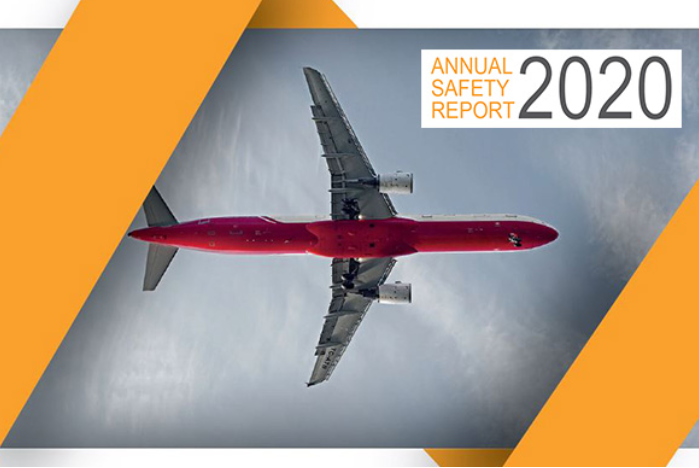The Swiss Federal Office of Civil Aviation (FOCA) in its 2020 annual safety report records that the number of drone occurrence reports declined to 40 in 2020 from the 79 of the previous year. “The trend is probably largely attributable to the COVID-19 situation that prevailed throughout much of 2020,” said FOCA. “It will still be some time, however, before the impact of an improved reporting culture can be properly assessed. Moreover, the exceptionality of 2020 has only further delayed this process. The number of sightings of unmanned aerial vehicles (UAVs) by aircrews in 2020 was 16 cases. A decline of some 80% from the 79 of the previous year. Of these 16 reports, nine related to sightings near aerodromes, including four within the perimeter of non-Swiss aerodromes. In one of the cases outside Switzerland, the flight was forced to use a different tak-eoff runway. Two further drone sightings were around hospital landing sites in Switzerland.
“A further 21 incursions by UAVs into prohibited zones (such as the five-kilometre-radius area around aerodromes) were recorded in 2020. Sixteen of these were by UAVs identified as multicopter drones. Three crashes of UAVs were reported. In one such case, one person was injured when a model aircraft crashed in Ottenbach, Canton Zurich. The cause of the crash was the operator’s loss of control over the aircraft after becoming blinded by the sun.”
The COVID-19 pandemic has made the process of monitoring the evolution of drone accident risks extremely challenging.
“To estimate the risk of a collision between a drone and another Swiss airspace user, a detailed risk assessment was conducted back in 2018 which determined the likelihood of a collision between a drone weighing up to two kilograms and an aircraft (an airliner, business jet, small aircraft or helicopter). This risk assessment was updated in 2019, and again in 2020. The ramifications of the COVID-19 pandemic have prompted a decline in both manned flights and the reports from the pilots thereof, and this in turn has basically reduced the collision risk. Given the exceptional nature of the present situation, however, no general conclusions should be drawn from this latest trend. The FOCA continues to assume that the risk situation here is broadly stable. It is aware, though, that ensuring the responsible use of the still-growing numbers of such devices designed for the public will require heightened attentiveness and an intensification of the Office’s corresponding communications endeavours.”
The report also stresses the importance of U-Space to improving the safety of drone operations.
“The development of the U-Space system,” says FOCA, “which will permit the adoption of automated drone traffic management, continues at both the national and the European level. Subjecting drones to such automated traffic management enables them to be identified and have their movements monitored and coordinated with those of other airspace users, and can additionally ensure the easier and more effective protection of particularly sensitive airspace areas. Since it will incorporate all the necessary elements for enforcing the applicable legal provisions, U-Space is set to become the core instrument for ensuring the safe and controlled operation of drones, and should serve as a basis for this Europe-wide. A number of the parties required in Switzerland to operate the U-Space system have now teamed up under the Swiss U-Space Implementation (SUSI) public-private partnership. SUSI will not only enable U-Space to be developed and adopted on the basis of European provisions and in line with its overall objectives; it will also permit further trials and demonstrations to be conducted in Switzerland, such as automated traffic management among the drones registered by the various service providers. Thanks not least to our industry’s strong innovation credentials, U-Space is being developed at an impressive pace, and may well deliver substantially more advantages over the next few years that will benefit manned aviation, too. In combination with AVISTRAT-CH in particular, these developments could make a sizeable contribution to the safety of an aviation system that continues to grow in complexity.
However, notes FOCA, “the adoption of European drone regulations in Switzerland has currently been delayed as a result of Motion 20.3916 to exclude model aircraft flying from the same. What impact the present non-adoption of these European provisions may have on the safe operation of UAVs in Switzerland is currently impossible to assess.”
For more information
https://www.bazl.admin.ch/bazl/en/home/the-foca/studies-and-reports/jaehrliche-berichte.html




